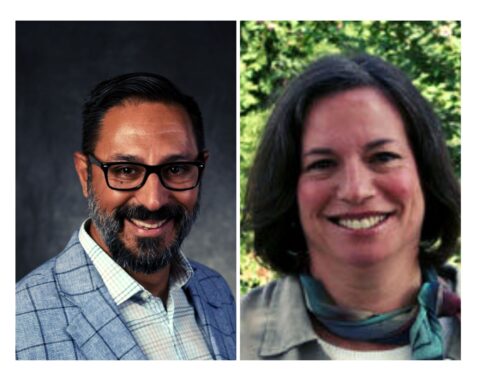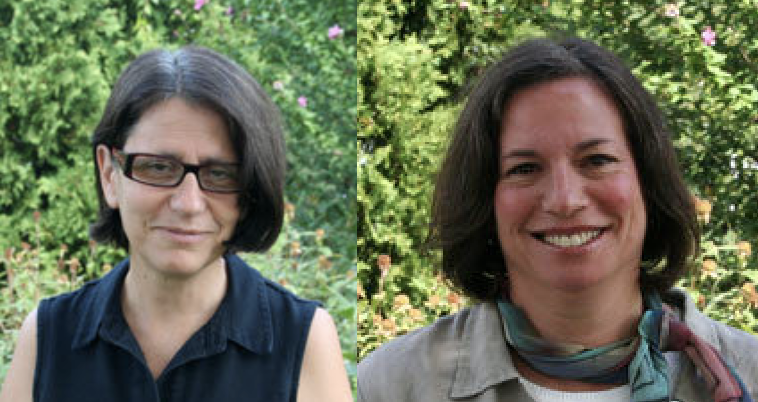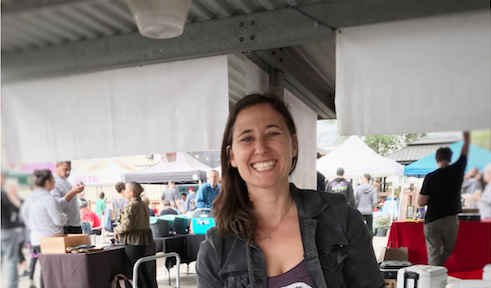 Dr. Kathi Borden and Dr. Jude Bergkamp, two of Antioch’s psychology faculty, participated this September in an intensive two-day conference about increasing social responsiveness in health service psychology training across the United States. The conference, which was held digitally by the Council of Chairs of Training Councils (CCTC), was only a beginning to the work of reforming and decolonizing psychology. The group is continuing its work via videoconference and hopes eventually to publish its work developing this set of best practices for social responsiveness.
Dr. Kathi Borden and Dr. Jude Bergkamp, two of Antioch’s psychology faculty, participated this September in an intensive two-day conference about increasing social responsiveness in health service psychology training across the United States. The conference, which was held digitally by the Council of Chairs of Training Councils (CCTC), was only a beginning to the work of reforming and decolonizing psychology. The group is continuing its work via videoconference and hopes eventually to publish its work developing this set of best practices for social responsiveness.
Professor of Clinical Psychology at Antioch University New England, Dr. Borden explains that with social responsiveness—and relatively more familiar terms like social justice and social responsibility—the emphasis “is on acknowledging ways that individuals, groups, and the systems in which we live and participate contribute to inequities based on factors such as group membership (e.g., race, sexual orientation, religion).” By acknowledging these factors, we can become aware of how they underlie the sometimes unconscious assumptions people make about each other.
“With social responsiveness, we remain aware of systemic and historical inequities, and feel obligated to take action to right those wrongs,” Borden says. “In this way, we work to improve the quality of life of individuals and communities by creating fair and just systems.”
According to Dr. Bergkamp, Chair of Antioch University Seattle’s Clinical Psychology Department, the conference marked a successful start to this vital work, which doesn’t only impact the field but also feeds back into his own practice.
“The conference was encouraging and energizing as I could team up with other Chairs and leaders in the field to liberate clinical and counseling psychology and, in a way, continue to liberate myself,” Dr. Bergkamp says. “It’s meaningful work that I believe in, and that cultivates my research and professional expertise.”
Dr. Bergkamp attended the conference as a representative of the National Council of Schools of Professional Psychology (NCSPP), on whose executive committee he serves, in addition to chairing its Ethnic & Racial Diversity Committee. At the conference, he was chosen to serve as a member of the Decolonizing Doctoral Curriculum and Training task force. They worked to recommend revamped curricula that center scholars of color, dismantle racism, and ensure that course content is examined through a lens of inclusion, equity, and racial justice.
Dr. Borden, a past president of NCSPP, also attended as an NCSPP delegate and served on the task force to determine ways of diversifying health service psychologist pipelines. They are trying to identify barriers and pathways that affect whether a student will become interested in psychology, succeed at studying the subject, become credentialed, and eventually enter the workforce. There are barriers, Dr. Borden says, at all levels of entry into psychology. The taskforce identified barriers that prevent high schoolers and undergraduates from the studying psychology (for instance finances and many years of study, stigma about psychology and mental health and illness, and possible bias in some school counseling), barriers to graduate study (for instance admissions practices, expense, program environment, and attrition), and barriers to those who have completed graduate study (for instance, licensing examinations and hiring practices). In each area, they are working to find ways to disrupt inequities.
Moving forward, more meetings will be held among the workgroups and in the organization as a whole. Says Dr. Borden, “We will continue our work over several months to develop materials to help psychology be more inclusive, accessible, and relevant to diverse groups.” And in the meantime, they are bringing their insights and conversations back to their students and colleagues at Antioch.
The conference, “Social Responsiveness in Health Service Psychology Training: Recalibrating Our Collective Mission” was held on September 24th and 25th, 2020. The Council of Chairs of Training Councils consists of officers from different associations involved in psychology education and training in the U.S. and Canada, such as those involved in doctoral education, internships, postdoctoral programs, the Veterans Administration, Training Clinics, Counseling Centers, and training in areas such as geropsychology, health, child, pediatric, and neuropsychology.



